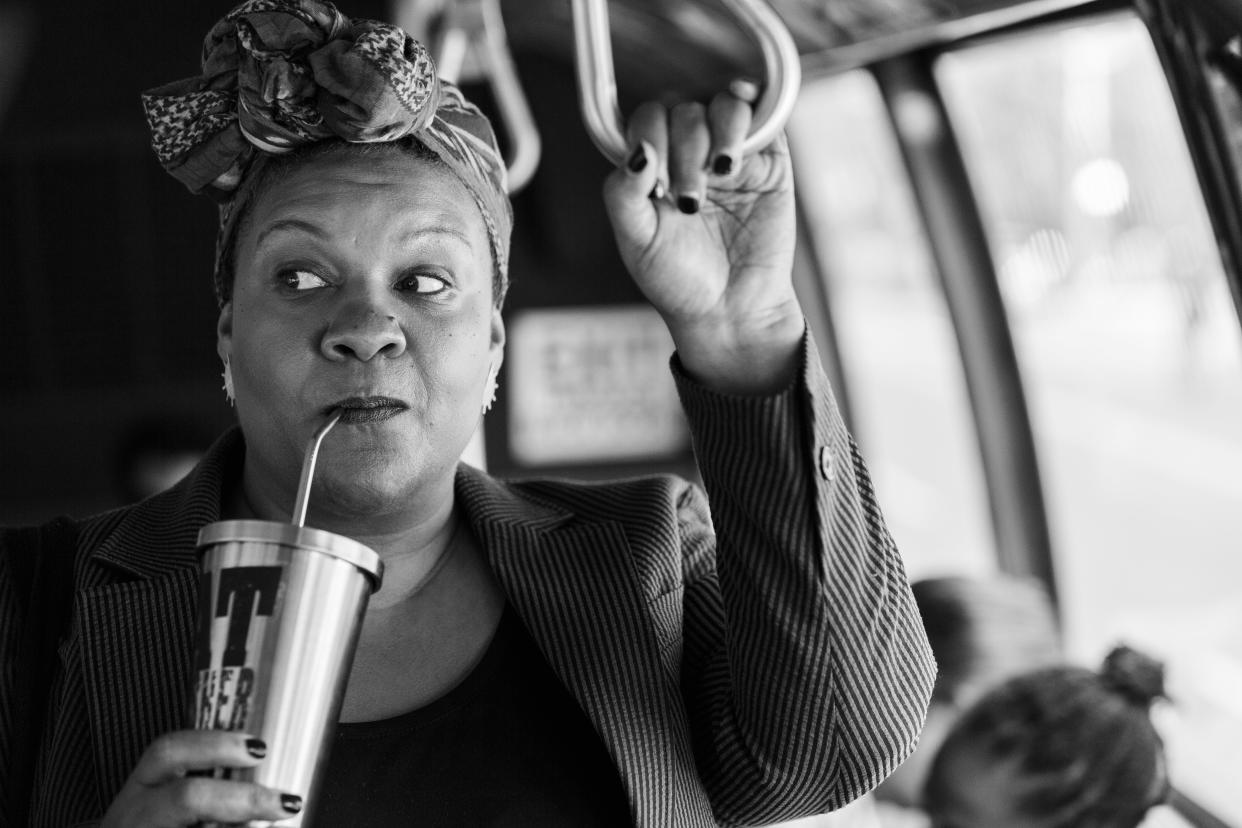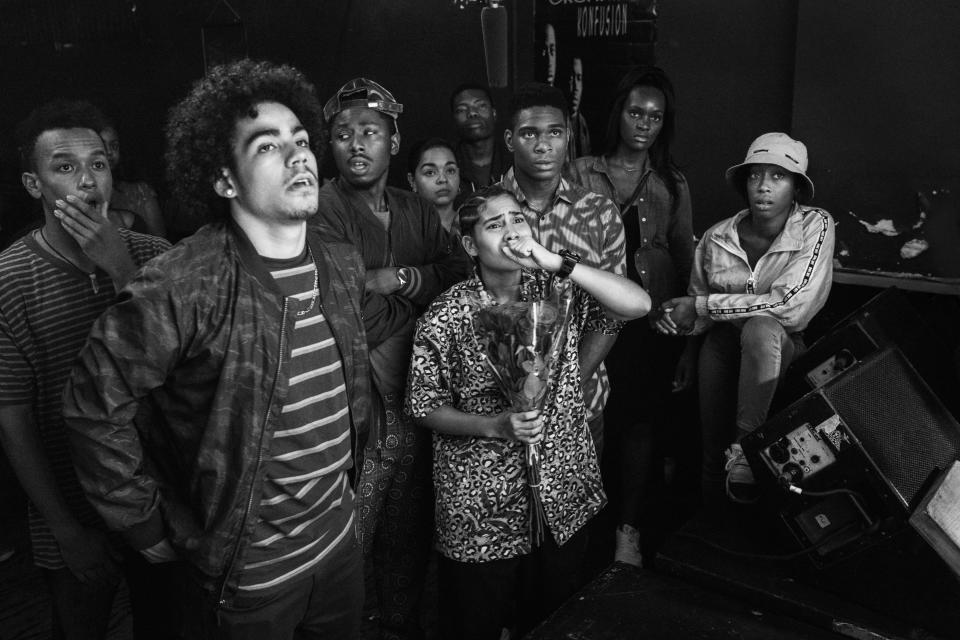The Forty-Year-Old Version review: A witty comedy that creates its own space for black female voices

Dir: Radha Blank. Starring: Radha Blank, Peter Kim, Oswin Benjamin, Reed Birney. 15 cert, 124 mins
“My mother raised me to be fearless,” Radha (Radha Blank), a dissatisfied playwright hurtling towards middle age, confesses. “I guess, when she died, that’s when I started getting afraid.” Cinema may worship the coming-of-age story, but there’s a second hurdle of maturing that’s rarely discussed – the realisation, when our parents die, that there are no more barriers between us and the world. We are well and truly exposed. Grief isn’t what primarily drives Netflix’s The Forty-Year-Old Version – a comedy written, directed and starring Blank. But this isn’t some one-theme pony. Blank’s story embraces every crease and edge of a 40-year-old black woman’s inner and artistic life.
Radha hasn’t had any work produced in nearly a decade. Her rent only gets paid thanks to a teaching job, though her students can’t quite decide whether she’s an overlooked genius or a grifter. Her childhood best friend, and current agent, Archie (Peter Kim), hangs on the other side of the phone, begging her to do something (anything!) that might finally get her career in motion again. And it’s harder now, without the comfort of a mother’s hand on her shoulder.
Blank’s film is semi-autobiographical in nature, though her offscreen success far surpasses that of her fictional proxy – her Off-Broadway work caught the eye of Spike Lee, who hired her to write for Netflix’s series reboot of She’s Gotta Have It. The 40-Year-Old Version graciously, lovingly pays homage to Lee’s 1986 film – not only was it shot on 35mm in black-and-white, with all the electric curiosity of street photography, but it’s intercut with still images and interviews with Harlem locals.
A “30 under 30” award sits on Radha’s shelf. It’s a reminder that creative industries love to “discover” black artists, but rarely support them after. And so Radha finds herself at a fork in the road, where both paths are well-tread and indisputably grim. She could produce her next play with the black-owned YOUmoja Theater, who proudly claim to be driven by the “spirit of cause, not commerce” (ie they don’t pay). Or she could sidle up to Josh Whitman (Reed Birney), a white producer caught up in post-Hamilton fervour but whose dedication to platforming marginalised voices extends only to cheap cash grabs – say, an all-female 12 Angry Men or a Harriet Tubman musical – and portraits of black pain. He declares, without a hint of self-awareness, that Radha’s work is “a little inauthentic”, adding: “Did a black person really write this?” The humour here is perfectly choreographed, as Whitman’s statements, both absurd and uncomfortably familiar, come crashing up against Radha’s incredulous expressions.

It made me wonder: even with a powerhouse like Lena Waithe backing her project, did Blank herself have to compromise to get The Forty-Year-Old Version made? That feels like the kind of question Blank would want us to ask. Where does someone find peace in an unbalanced world? Radha starts to think hip-hop could be the answer, after she discovers both an ally and potential love interest in a local DJ, D (Oswin Benjamin, wonderfully stoic). Here she can vent about those “sucking white, wrinkly dicks just to be a New York Times theatre pick”. But Blank doesn’t offer an easy way out. There are gatekeepers on all sides. Her real hope is if she can create her own space. The Forty-Year-Old Version – witty and deeply personal – is Blank doing exactly that.


